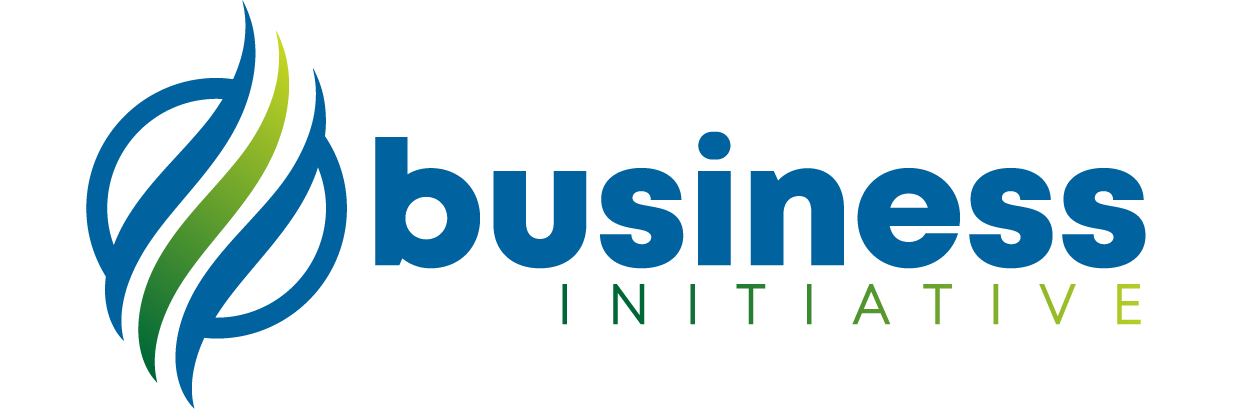What is Corporate Philanthropy?
Definition: The act of companies donating resources, such as time, money, or products, to support charitable and non-profit organizations. It reflects a company’s commitment to social responsibility and its desire to make a positive impact on the community.
Corporate philanthropy can take many forms, from direct financial contributions to employee volunteer programs and in-kind donations. This can be a powerful tool for businesses to not only give back to their communities but also drive business success.
By aligning philanthropic initiatives with a company’s values and goals, they can enhance their brand image, attract and retain customers, improve employee morale and engagement, and even increase profits.
 Key Takeaways
Key Takeaways
- Align philanthropy with core values: Ensure your company's charitable efforts genuinely reflect its values, resonating with customers and strengthening brand identity.
- Engage employees: Involve employees in philanthropic initiatives to boost morale, improve job satisfaction, and foster a sense of purpose.
- Measure impact and refine strategies: Track outcomes, make data-driven decisions, and regularly adjust strategies to optimize results and maximize impact.
- Leverage partnerships: Collaborate with non-profits, businesses, or community groups to expand your philanthropic activities and achieve more significant results.
- Communicate successes transparently: Share stories of your company's philanthropic initiatives, including challenges and lessons learned, showcasing authenticity and commitment to social responsibility.
So if you’re looking to take your business to new heights while making a positive impact on society…
Keep reading!
The Business Case for Philanthropy - Benefits
There are several compelling benefits for businesses to engage in philanthropic activities, including:
-
Enhanced brand reputation: Companies that demonstrate a commitment to social responsibility can enjoy a more positive public image. For example, TOMS Shoes has built its brand around a “one-for-one” giving model, donating a pair of shoes to a child in need for every pair sold.
-
Increased employee engagement and satisfaction: Employees are more likely to feel proud of and committed to their organization when they see it making positive contributions to society. A study by Deloitte found that 89% of employees believe companies that sponsor volunteer activities offer a better overall working environment.
-
Stronger customer loyalty: Consumers are increasingly interested in supporting businesses that align with their values and contribute to social causes. A Cone Communications study found that 87% of consumers would purchase a product based on the company’s advocacy for an issue they care about.
-
Potential tax benefits: Depending on the jurisdiction, businesses may be eligible for tax deductions or credits for charitable contributions.
-
Increased innovation: Engaging in philanthropic activities can drive innovation by encouraging employees to think creatively and come up with new ways to solve social problems. This can lead to new products, services, or processes that benefit both the company and society.
-
Improved public relations: By partnering with reputable non-profit organizations, businesses can generate positive media coverage and improve their relationships with key stakeholders, including customers, investors, and government officials.
-
Attracting top talent: Younger generations of workers are increasingly interested in working for companies that prioritize social responsibility. A survey by Cone Communications found that 64% of millennials consider a company’s social and environmental commitments when deciding where to work.
-
Networking opportunities: Participating in philanthropic events or initiatives can provide valuable networking opportunities for businesses to connect with other like-minded individuals or organizations in their industry.
-
Greater sense of purpose: Engaging in philanthropy can provide businesses with a greater sense of purpose beyond simply making a profit. By contributing to society in meaningful ways, businesses can create a positive impact on the world while also improving their bottom line.
Aligning Philanthropy with Your Business Goals and Values
To maximize the impact of corporate philanthropy, businesses should align their charitable initiatives with their overall mission and values. This ensures a consistent and authentic approach to giving back. Here are some tips to help you align your philanthropic efforts:
-
Identify your company’s core values: Determine what principles and beliefs drive your business, and use these as a foundation for your philanthropic endeavors.
-
Research and select appropriate causes: Choose charitable organizations and causes that align with your company’s values and resonate with your target audience.
-
Involve employees in the decision-making process: Engage your team in selecting charitable partners and initiatives, fostering a sense of ownership and commitment.
Steps for Developing and Implementing Philanthropic Initiatives
To develop and implement effective philanthropic initiatives, consider the following steps:
1. Set clear goals:
Establish specific, measurable, achievable, relevant, and time-bound (SMART) objectives for your philanthropic efforts.
To set clear goals for your philanthropic efforts, follow these steps:
- Identify the cause or issue you want to support
- Determine what you hope to achieve through your philanthropy
- Develop specific, measurable, achievable, relevant, and time-bound (SMART) goals
- Consider the impact you want to have and how you will measure it
Goal setting tools:
2. Allocate resources:
Budget for financial contributions, employee time, and any other resources required for your initiatives.
To allocate resources for your philanthropic efforts, follow these steps:
- Determine how much money and time you can realistically contribute
- Research the costs associated with your chosen cause or issue
- Develop a budget that includes financial contributions, employee time, and any other resources required
- Consider partnering with other businesses or organizations to maximize your impact
Tools for staying organized:
3. Develop a plan:
Outline a clear strategy for achieving your philanthropic goals, including timelines, roles and responsibilities, and key activities.
To develop a plan for your philanthropic efforts, follow these steps:
- Identify the steps required to achieve your goals
- Determine the timeline for each step
- Assign roles and responsibilities to team members
- Develop a communication plan to keep stakeholders informed of your progress
Planning guides:
4. Communicate your efforts:
Share your philanthropic initiatives with your stakeholders, including employees, customers, and the broader community.
To communicate your philanthropic efforts, follow these steps:
- Develop a communication plan that includes messaging, channels, and target audiences
- Share your philanthropic initiatives through social media, email newsletters, and other channels
- Encourage employees to share your initiatives with their networks
- Measure the impact of your communication efforts
Communication resources:
5. Evaluate and adjust:
Regularly review your philanthropic activities, measure their impact, and adjust your approach as needed.
To evaluate and adjust your philanthropic efforts, follow these steps:
- Develop a system for measuring the impact of your philanthropic initiatives
- Regularly review your progress against your goals
- Adjust your approach as needed based on your progress and feedback from stakeholders
- Celebrate your successes and learn from your failures
Tools for gauging success:
Measuring the Impact of Philanthropy
To understand the effectiveness of your corporate philanthropy, it’s essential to measure the impact of your efforts. Consider the following methods:
-
Track financial contributions:
It is important to keep track of the direct monetary support provided to charitable organizations. This can be done by creating a spreadsheet or using a software program to record the amount donated, the date of the donation, and the name of the organization.
Benefits of tracking financial contributions include being able to see the total amount donated over time, being able to claim tax deductions for charitable donations, and being able to identify areas where more support may be needed.
-
Measure employee engagement:
Assessing the number of employees participating in volunteer programs or other philanthropic activities, and gathering feedback on their experiences can help measure employee engagement. This can be done by creating surveys or feedback forms for employees to fill out.
Benefits of measuring employee engagement include increased employee morale and job satisfaction, improved team building and collaboration, and a positive impact on the company’s reputation.
-
Evaluate community impact:
Working with charitable partners to understand the outcomes of your support, such as the number of people served or the tangible improvements in their lives, can help evaluate community impact. This can be done by requesting regular reports from the charitable organizations you support, or by conducting your own surveys or assessments.
Benefits of evaluating community impact include being able to see the positive effects of your philanthropic efforts, being able to identify areas where more support may be needed, and being able to communicate the impact of your efforts to stakeholders.
-
Assess business benefits:
Analyzing the impact of your philanthropic efforts on your company’s reputation, customer loyalty, and employee satisfaction can help assess business benefits. This can be done by conducting surveys or focus groups with customers and employees, or by analyzing sales and marketing data.
Benefits of assessing business benefits include increased customer loyalty and brand recognition, improved employee retention and recruitment, and a positive impact on the company’s bottom line.
The Power of Giving Back
Embracing corporate philanthropy can create a lasting, positive impact on your business and the communities you serve. By giving back, you can enhance your brand’s reputation, improve employee morale, and drive customer loyalty, all while making a meaningful difference in the world.
Don’t miss this opportunity to harness the power of corporate philanthropy and drive your business to new heights. Start developing and implementing effective philanthropic initiatives today and experience the benefits of giving back.
Are you ready to take your corporate philanthropy initiatives to the next level?
Business Initiative is here to help. Our team of experts can provide personalized consultations that will help you align your philanthropic goals with your overall business strategy.
Contact us today to learn more about our services and how we can help you make a positive impact on society while driving business success.
To get in touch with us, simply visit our contact page here or hit us up @BisInitiative on X
Don’t wait…
Take action now and make a difference in the world!
Sources
- TOMS Shoes Giving
- Deloitte's 2017 Volunteer Impact Research
- 2017 Cone Communications CSR Study
- How to Set SMART Goals
- SMART Goals Worksheet
- How to Create a Budget
- Costs of Starting a Nonprofit
- How to Develop a Strategic Plan
- Strategic Planning Worksheet
- How to Create a Communication Plan
- Social Media Strategy Template
- How to Measure the Impact of Your Philanthropy
- Continuous Improvement Template


